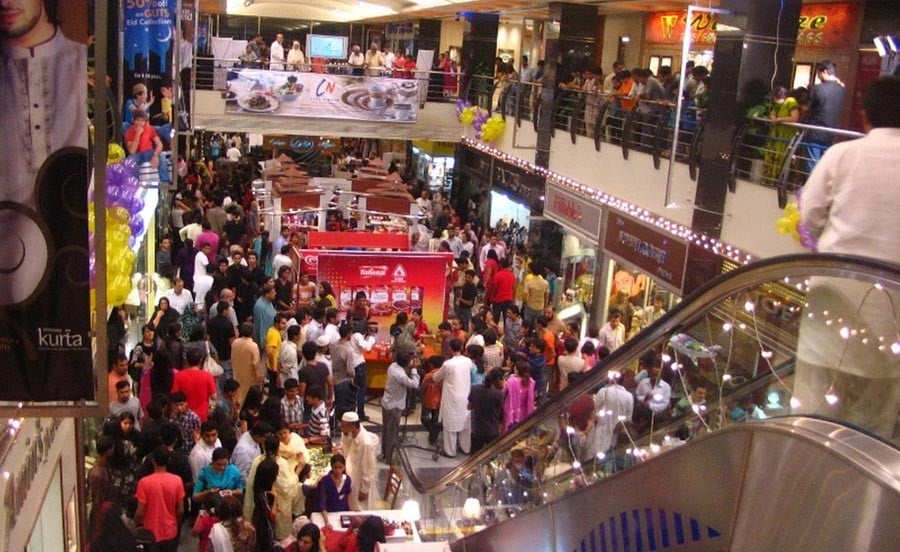
In the week before the month starts, and the week leading up to eid, sales go quite high

Ramzan had just been announced. I was standing in line at Lahore’s iconic superstore, with a total of three products in my cart. However, all the cash counters were crowded. Most of the customers had one, two, and in a couple of cases, three trolley full of groceries ready to be paid for. From lentils, biscuits and tissues to juices, soap and dairy products, it seemed that everyone was stocking up big time. Was this the obligatory pre-Ramzan splurge? Is that even a thing?
According to Shehryar Anwer, who runs a research firm which looks at consumer retail patterns in Lahore, the answer is somewhere in between. "It would not be accurate to look at sales patterns of all essential, everyday items with the same Ramzan lens," he says.
"The demand for certain select items goes up as Ramzan approaches," he says. Items including but not limited to bottled juices, such as red sharbat, milk, frozen foods, such as samosas, shami kebabs and the like. Stores realise this, and start offering bulk purchase discounts, which entices willing customers to buy in quantities larger than they normally would.
At the same time, people do a lot of charity, especially in Ramzan, says Anwer. "They purchase essential items, such as lentils, rice, boxed juices, etc, to be distributed to the poor, and this further pushes sales upwards."
Another item which sees a serious upsurge in sales is fruit. After a grueling 14 hour fast, fruit is one of the best pick-me-up items to be had at iftar. With high levels of natural sugar, it is a regular feature of most iftar spreads.
While this upsurge happens, the demand for other items, necessary for the general upkeep of a kitchen/household also continues. "People continue purchasing these other non-Ramzan items on the usual frequency," says Shehryar. "Hence, while it may look like their purchasing has gone up, it is in fact, only for certain select items."
As the month progresses, people also host iftar parties for their families and friends. Some have lavish iftar spreads, whereas others offer a basic iftar followed by an elaborate dinner. Again, this has a direct impact on purchases. "When you’re having guests over, you need to make sure there’s more than enough food and drink on the table," says Anwer. "People tend to go overboard with their spreads, because a well-stocked table/trolley is a show of financial strength. While this is something most of us have at least witnessed, if not been guilty of, the fact that it goes against the philosophy of the month is lost on many.
However, it’s not that the sales of everything goes up. There are other items which see a decrease. Bilal works for one of the top milk and juice brands in the country. He tells me that while the demand for milk exponentially rises during the holy month, the sale of other items, especially small juice boxes, which are consumed on the go, decreases. "It is outlawed to eat and drink in public," he reminds me. And either out of fear or respect people refrain." If you take out the week before the month starts, and the week leading up to eid, there is a dip in sales of about 20 per cent," he says.
Read also: A new message for 30 days
However, things begin to pick up again, during the last week of Ramzan. As we all know, eid is an elaborate affair in our culture. "People start stocking up for all the guests that are going to show up at their houses over the course of three days," says Anwer. Again, this surge in shopping is product-specific in that people are not stocking up on items like mincemeat and toothpaste, but more on ingredients necessary for dishes appropriate for eid. So the sale of items like sugar, gram flour, chickpeas, milk and the like goes up leading up to eid.
Another factor that drives sales towards the end of Ramzan is the fact that the entire country shuts down for at least three days, if not more. Shops and butcheries remain closed as people celebrate eid with their near and dear ones. So apart from the items necessary for the celebration of eid, people are again also stocking up on everyday items necessary for their day to day living.